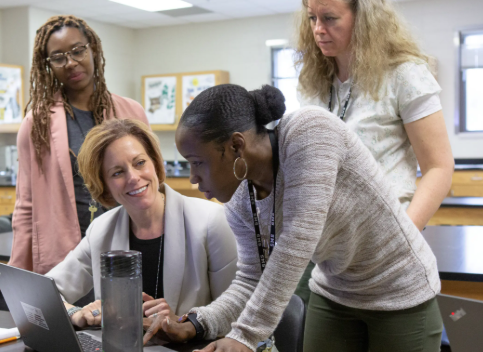Strong stakeholder relationships are the cornerstone of a thriving school community. Stakeholders—students, parents, teachers, staff, district leaders, and community members—each play a vital role in shaping school success. When schools foster open communication, mutual respect, and collaborative engagement with all stakeholders, they build trust, improve decision-making, and enhance student outcomes.
Identify and Include All Stakeholder Groups
The first step in building strong relationships is identifying who the stakeholders are and ensuring their voices are heard. This includes not only parents and teachers, but also students, support staff, local businesses, nonprofit organizations, and civic leaders. Inclusion demonstrates that the school values diverse perspectives and is committed to shared ownership of its mission.
Establish Clear and Open Communication Channels
Transparent, consistent communication is essential to stakeholder trust. Schools should use a variety of platforms—newsletters, emails, websites, meetings, and social media—to keep stakeholders informed and engaged. Two-way communication, such as surveys, suggestion boxes, and listening sessions, invites feedback and reinforces that stakeholder input matters.
Build Trust Through Transparency and Consistency
Trust is built over time through honest communication and reliable follow-through. School leaders should clearly communicate decisions, explain the rationale behind policies, and be open about challenges and opportunities. By consistently aligning words with actions, leaders strengthen their credibility and relationships.
Involve Stakeholders in Decision-Making
Inviting stakeholders to participate in decision-making processes promotes ownership and accountability. Parent advisory groups, student councils, teacher committees, and community partnerships can all contribute valuable insight. Collaborative decision-making leads to more inclusive, sustainable solutions and a greater sense of shared responsibility.
Celebrate and Recognize Contributions
Acknowledging the contributions of stakeholders builds goodwill and reinforces positive relationships. Recognizing volunteer efforts, highlighting student achievements, and thanking community partners demonstrate appreciation and help strengthen long-term support.
Provide Opportunities for Partnership and Engagement
Schools can build relationships by offering opportunities for stakeholders to engage directly in school life. This might include classroom volunteering, participating in school improvement planning, leading extracurricular clubs, or partnering on service-learning projects. Engagement should be meaningful, accessible, and aligned with stakeholder interests and strengths.
Support Equity and Cultural Responsiveness
Strong relationships require inclusive practices that respect and reflect the diversity of the school community. Culturally responsive engagement strategies—such as providing translation services, scheduling flexible meeting times, and honoring cultural traditions—ensure all stakeholders feel welcome and valued.
Evaluate and Adjust Relationship-Building Efforts
Regularly reviewing engagement strategies helps schools identify what’s working and where improvements are needed. Feedback from stakeholders through surveys or focus groups can inform adjustments, leading to stronger, more responsive partnerships over time.
Conclusion
Building strong relationships with stakeholders enhances the effectiveness, transparency, and inclusivity of school leadership. By actively engaging all members of the school community, educators foster trust and collaboration that support student success and long-term school improvement. A connected school is a successful school—and strong relationships are what make that connection possible.














